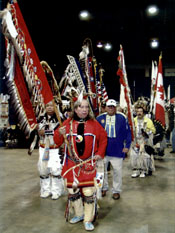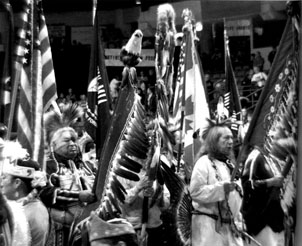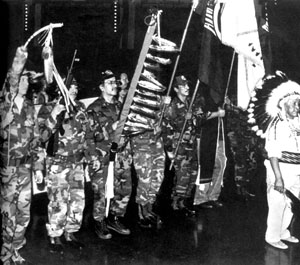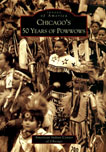|

 |
Chicago's Fifty Years of Powwows |
<Adapted from the book of the same name>
The Fourth Circle: The Community
THE POWWOW OPENS WITH THE GRAND ENTRY
American Indian veterans are seen as warriors and protectors of the people. As such, they hold an honored place at the powwow and lead the Grand Entry procession.
Other respected individuals include princesses from visiting tribes and organizations. Indian people have many ways of honoring their veterans, especially their wounded veteran, and the ones who have not returned to their loved ones. At every powwow there are honoring dances and songs. It is a part of Indian tradition to take time to show honor and respect for those who have met the challenges of life and death in defense of the people.
To be a warrior was a man's purpose in life and the most honorable death a man could have was to fall defending the people. To the Indian people, the well being of the entire tribe was more important than that of any individual; and so the warriors were honored because they were willing to give their lives in order that the people might live. Today's veterans are accorded the same tokens of honor and respect
as the warriors of times past, and, in many tribes, bravery is still
revered as one of the four virtues: bravery, generosity, wisdom,
and fortitude.
Forward to the next page of this essay Back to the previous page of this essay Back to the menu page for this essay Back to Online Essays
|
| |
Department
of Anthropology |
copyright ©
2002 University of Illinois, All rights reserved. |




